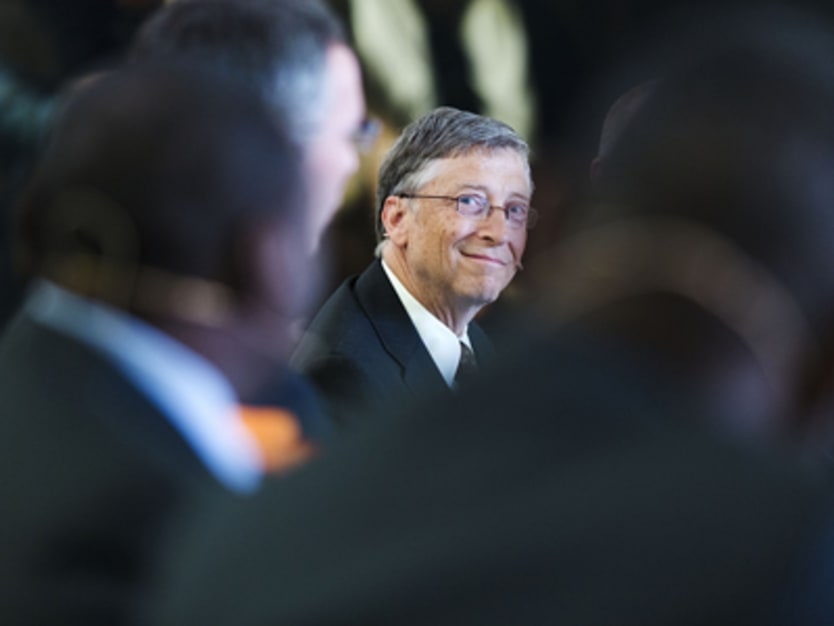
When it comes to the next set of global development goals, Bill Gates has this to say: Why fix something that isn’t broken?
In his 2013 annual letter released Jan. 30, the billionaire philanthropist noted that because of the progress made toward achieving the Millennium Development Goals, there is a lot of interest to expand them. The MDGs, he said, were coherent, the groups that needed to work together on the goals were easy to identify and these groups could be held accountable for cooperation and progress.
“But many of the potential new goals don’t have unanimous support, and adding many new goals, or goals that are not easily measurable, may sap momentum,” he said.
This wasn’t the first time Gates made his objection to changing the current goals when they expire in 2015. At the recently concluded World Economic Forum annual meeting in Davos, Switzerland, he said the MDGs should be left alone.
The letter came out as the U.N. High-level Panel on the Post-2015 Development Agenda began its third meeting. At the gathering in Monrovia, Liberia, the group — led by U.K. Prime Minister David Cameron, Liberian President Ellen Johnson Sirleaf and Indonesian President Susilo Bambang Yudhoyono — is focusing on the drivers of economic transformation “that need due consideration” in a future global development framework.
Gates said when the United Nations agrees on other important goals such as climate change mitigation, it should think about whether a different set of actors and a separate process would best fit such efforts.
First issued in 2009, Gates’ annual letter tends to highlight one or more themes that meant to drive the discourse and work within the aid community.
His annual letter in 2011, for instance, called for the end of polio. Soon enough, polio drew more donor attention: Nigeria and Australia pledged funds for polio eradication during the Commonwealth Heads of Government Meeting in Perth in October of that year. The following year, eradicating the disease was declared a global public health emergency and received further support at a side event of the U.N. General Assembly.
This time, Gates wants the aid community to focus on measurement.
“In previous annual letters, I’ve focused a lot on the power of innovation to reduce hunger, poverty, and disease. But any innovation — whether it’s a new vaccine or an improved seed — can’t have an impact unless it reaches the people who will benefit from it,” Gates wrote. “That’s why in this year’s letter I discuss how innovations in measurement are critical to finding new, effective ways to deliver these tools and services to the clinics, family farms, and classrooms that need them.”
Gates suggested that measurement could shape public opinion on aid. Through accurately measuring development indicators, people can see the impact of aid in absolute terms — “that it’s the difference between putting people on HIV treatment or letting them die,” Gates said.
“When framed this way, he said, “aid has a better chance of becoming a priority for people.”
Read more development aid news online, and subscribe to The Development Newswire to receive top international development headlines from the world’s leading donors, news sources and opinion leaders — emailed to you FREE every business day.








